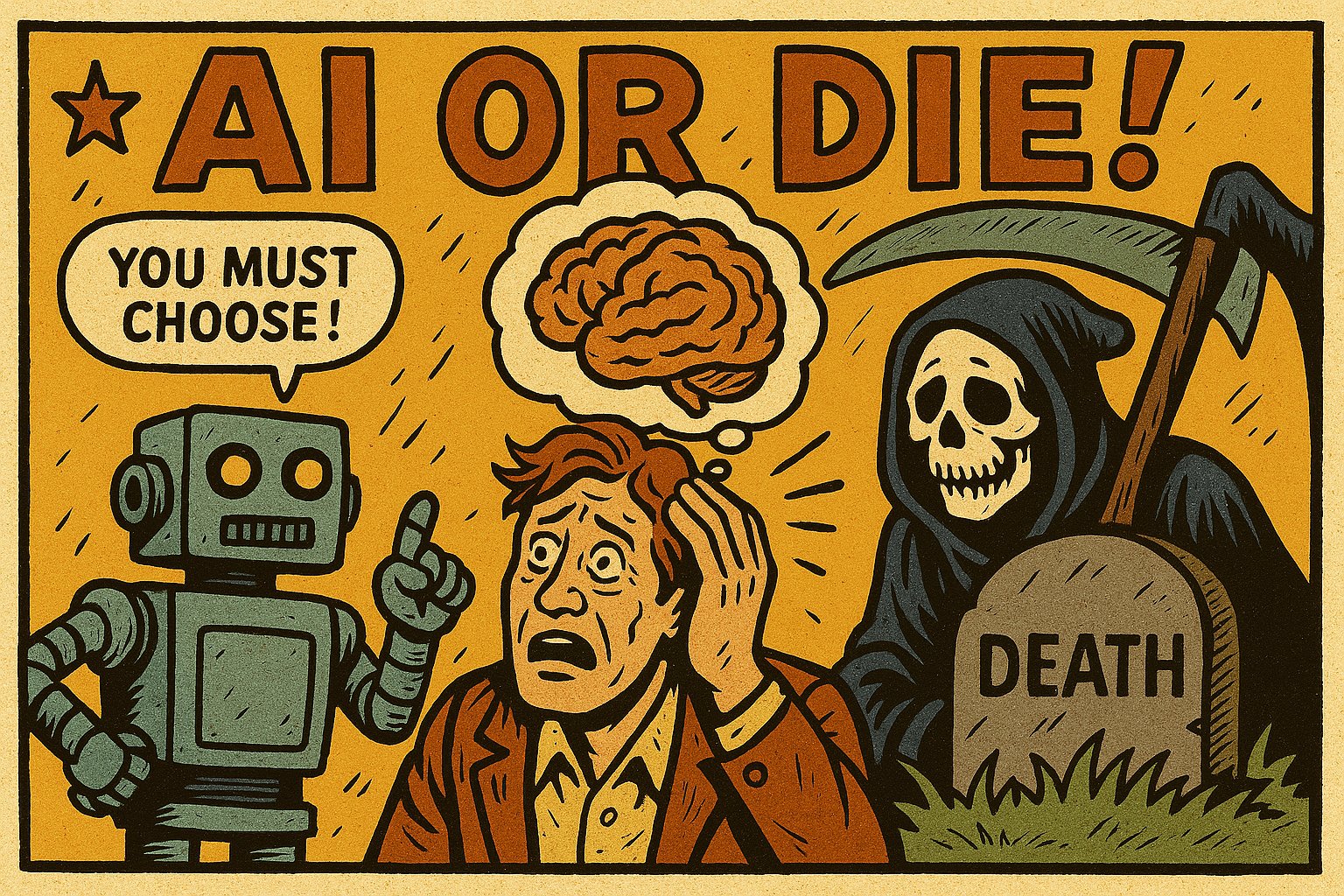That Familiar Spiral: Reaction Over Intention
We’ve all been there: it’s 10:00 p.m., you’re slouched in your chair, mind buzzing but body exhausted, wondering how your day vanished in a blur of meetings, Slack chaos, and half-finished thoughts.
For neurodivergent leaders—especially those of us with ADHD—this spiral isn’t a rare crisis. It’s our default state unless we act with intention. Constant task-switching, dopamine chasing, and distractions thrive in cluttered workflows.
And yet, we’re told to “optimize” , “just apply yourself” or more recently, “just use AI,” as if that alone solves everything.
Spoiler: It doesn’t.
Here’s the truth: AI isn’t a shortcut. It’s an amplifier.
If your calendar is chaotic, AI will scale the chaos.
If your system is purposeful, AI will multiply your clarity.
But only if you use it intentionally—and ethically.
Neurodivergent Minds: Superpowers and Pitfalls
Before we dive into systems, let’s recognize what makes neurodivergent leaders—particularly ADHDers—uniquely positioned for ethical, creative leadership in the AI age.
✅ The Gifts:
- Big-picture, systems thinking
- Hyperfocus on what excites us
- Challenging conventions and questioning the status quo
- Naturally experimental and iterative
⚠️ The Traps:
- Overwhelm from tool overload and constant context-switching
- Guilt spirals over procrastination or inconsistency
- Real decision fatigue—exacerbated by AI hype
So, what’s the solution?
Design a system that protects our brains—and the planet.
The Ethical AI Use Manifesto for Neurodivergent Leaders
Before we talk tools, let’s set a baseline. If we want to build something sustainable and impactful—not just for productivity, but for our teams and the world—we need a code of conduct.
Here’s my Ethical AI Use Manifesto, reimagined through a neurodivergent lens:
- Purpose over novelty: Use AI to reduce friction, not just to chase trends.
- Transparency first: Disclose when AI is used in content, communication, or decision-making.
- Sustainability matters: Factor in environmental impact; support low-energy tools where possible.
- Consent is non-negotiable: Only use AI with datasets, people, or recordings where clear permission is given.
- Bias-aware: Interrogate AI outputs—especially when making decisions that affect others.
- Neuroinclusion always: Design workflows that enhance neurodivergent focus and creativity—not suppress them.
This isn’t just about compliance.
It’s about being the kind of leader the future needs.
Replace Overwhelm With Leverage: The ADHD-Friendly Framework
1. Start With Friction, Not Features
Don’t ask, “Which AI tools are hot?”
Ask, “What’s draining my mental battery every day?”
- Rewriting the same Slack messages?
- Drowning in meeting notes?
- Struggling to prioritize?
- Losing ideas before you can act on them?
That’s your starting point.
Neurodivergent tip: Create a task drag map—a simple list of things that regularly sap your energy. Then ask if AI can offload even 20% of that task.
2. Treat AI Like a Junior, Not a Savior
AI isn’t magic. It’s a junior assistant: fast, but lacking context.
It won’t know your voice, tone, or values at first. You’ll need to train it—just like onboarding a new hire.
But once it’s dialed in, it can free up space for real thinking.
Neurodivergent tip: Make your AI workspace visually and structurally consistent. Use templates, saved prompts, and repeatable workflows to reduce cognitive load.
3. Design Before Automating
Burnout doesn’t come from hard work—it comes from meaningless work.
Automate chaos, and you just scale burnout.
Before automating:
- Define your desired outcome.
- Identify the human moments that matter.
- Choose where AI fits—not where it leads.
Try this: Ask, “Would this task benefit more from a conversation, a decision, or a draft?”
Only the last one is AI-friendly.
4. Velocity + Vision = Leadership
AI helps you move faster. But faster isn’t always better.
For ADHD minds, speed feels good—but it needs direction.
Ask:
- Why am I creating this?
- Who benefits?
- What impact does it have on people, data, or the planet?
When in doubt, pause. Clarity trumps momentum.
Ethics Without Overload: Choosing AI Tools That Align With Your Values
Here’s the hard truth: Most AI tools don’t tell you what they were trained on, how energy-intensive they are, or what happens to your data.
But a growing number do. Start with tools that value transparency, sustainability, and consent.
Tools Doing It Right:
- Ecosia – Green AI search; profits go to reforestation
- Hugging Face – Open-source AI with transparency by design
- OpenSC – Tracks ethical supply chains using AI
- RepRisk – ESG-focused AI for responsible investment data
- Orange Business – Ethical-by-design AI strategy
Pro tip: If a tool doesn’t disclose data sources, energy usage, or model transparency—skip it, or ask them to do better.
Roger’s Starter Stack for Ethical, ADHD-Friendly Productivity
Here’s a lightweight system I’m going to be testing over the next few weeks:
- AI Writing/Thinking: ChatGPT/Writer with custom instructions for tone, style, and ethics
- Meeting Capture: Read.ai/Zoom AI (opt-in recordings only)
- Project Prioritization: Notion AI with visual tags and neurodivergent-friendly dashboards
- Green Search: Ecosia
- Distraction Filter: Motion (auto-schedules tasks around calendar events)
Everything flows into one dashboard I review multiple times daily—not dozens of tabs competing for my attention.
Final Word: Your Workflow Is a Moral Choice
Neurodivergent or not, you get to choose what kind of leader you’ll be in the AI era.
You can:
- Use AI to mask the symptoms of burnout
- Chase every shiny tool
- Scale a broken system
Or you can:
- Use AI to protect your attention
- Build ethically aligned systems
- Lead with clarity, creativity, and compassion
Your calendar reflects your values.
Your tools reflect your ethics.
Your outcomes reflect your design.
Let’s build the future we want to lead.
If this resonated, let’s connect!
I’m building a community of neurodivergent leaders reimagining productivity with integrity—and I’d love for you to be part of it. Send me an email (or respond to this post!) and let’s start working on the future


